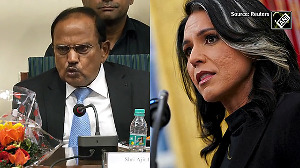Speak to an investment banking executive in Asia and it will not be long before the conversation turns to China and India.
Both countries' rapid growth is generating vast opportunities for banks, such as advising local companies on initial public offerings or mergers and acquisitions.
While the countries share some similarities - such as a desperate search for talent - the operating landscape for investment banks is noticeably different in many respects. At present, China is by far the bigger earner for investment banks.
According to Dealogic, the data provider, total investment banking revenues from activities in China relating to equity and debt capital markets, mergers and acquisitions and loans have this year surpassed $2.2bn. This is up from $1.6bn last year and just $328m in 2003.
The figures exclude revenue from underwriting A-share offerings in Shanghai or Shenzhen, in which foreign banks have negligible involvement.
By comparison, investment banking revenues in India will this year top $1bn, compared with $685m last year and $146m in 2003.
On the Dealogic measures, China and India now account for nearly half of all investment banking fees earned in Asia, outside Japan.
Bankers are bullish that their operations in the two countries will grow for years to come. Mark Renton, Citigroup's head of investment banking for Asia Pacific, says: "There is a fundamental shift occurring in the world's centre of gravity [to China and India] and this will be reflected for some time to come in terms of IPO and M&A activity."
However, the figures do not capture fee data from derivatives and trading - which banks claim account for the bulk of their true earnings. Banks are also making money from principal activity, where they use their own balance sheet to invest in deals.
The most spectacular have been the pre-IPO investments made in Chinese lenders, whose share prices have soared after listing - delivering large paper fortunes for the likes of Goldman Sachs and Merrill Lynch.
Revenue in China for foreign investment banks has been driven by overseas initial public offerings of state-owned mainland companies. This reached a peak in October 2006 with the $22bn listing in Hong Kong and Shanghai of Industrial and Commercial Bank of China, the world's largest-ever IPO.
Merrill Lynch, Deutsche Bank and Credit Suisse together are estimated to have pocketed around $400m for arranging the Hong Kong offering.
However, cash cows such as ICBC are the exception, with international banks this year having to satisfy themselves with a steady pipeline of smaller IPOs.
Thanks to tight restrictions that favour domestic firms, only Goldman Sachs and UBS were allowed to invest in mainland joint ventures able to underwrite IPOs or trade A-shares before Beijing slapped a ban on further foreign investment in the sector in 2005.
Foreign banks, including Credit Suisse and Morgan Stanley, this month signed preliminary agreements with mainland joint venture partners, in anticipation of early movement on approvals in Beijing.
In India, the growth in the investment banking fee pool has become sufficiently large that several foreign players have taken advantage of the ability to operate their own business and torn up joint ventures with local partners.
The latest to do so was Morgan Stanley, which this year ended an eight-year link with JM Financial, a Mumbai-based broker - though it did cost the US bank a hefty $445m to buy itself out of a securities joint venture.
India has a bigger syndicated loan market than China, while regulations which restrict local bank lending are playing in to the hands of foreign banks, as Indian companies seek greater financing to expand at home and abroad.
Investment banks are also earning large fees from sales and trading, in particular foreign exchange and interest rate derivative products, as sophisticated Indian companies seek to hedge risk.
Matt Austen, head of the Asia corporate and institutional banking practice for Oliver Wyman, a consultant, says: "China and India have a stringent regulatory environment [for investment banks]. But in India the discontinuities that result from it can be monetised by those with the ability to spot and seize the opportunity."This article is the first in a three-part series looking at China and India.






 © 2025
© 2025